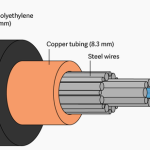AI: Huge Benefits & Great Concerns
There are different perceptions about what Artificial Intelligence (AI) is. Some think of AI as a sentient robot that looks, behaves and feels like a human. Fortunately, that’s largely science fiction. Another perception is far more real. It’s a robot that is nothing like us. This may be technology that powers a driver-less car. It takes you from place to place, without lifting a finger. This AI powered vehicle uses information from sensors and satellites, combining it with algorithms and databases. While also ensuring that a journey is safe and successful. This technology already exists across the world. In fact, governments are adopting legislation to accommodate this transportation shift. There are already draft proposals for self-driving car users to watch movies as they go from A to B.
How Does AI Improve Technology?
The scope of how artificial intelligence can help people is enormous. Especially via automation, which leads to increased efficiency and higher production. AI can help reduce uncertainty, analyze trends, and coordinate data to make smarter decisions. In fact, AI processors which mimic the human brain is available for industries such as automotive, health, IoT, manufacturing and more. Customer experience has also improved due to the use of chatbots and personalized email campaigns. Additionally, there have been breakthroughs in medicine where algorithms can detect diseases before they become malign. Monitoring technology allows doctors to perform more convenient diagnoses without patients going to hospital. Some of these methods are considered intrusive, as patients may believe that it compromises their privacy.
What Are Some Concerns About AI?
Some people became concerned about the power and dangers of AI when an IBM computer beat world chess grandmaster, Garry Kasparov. If computers can best the top player at the most complex game in existence, what hope is there for the rest of us? Many people are alarmed by the rapid rise of AI. Movies like The Terminator, Minority Report and The Matrix only add fuel to the fire. Luckily, there still hasn’t been a robot from the future to tell us that we’ve done something wrong. Jokes aside, the main concern in the AI space is not robots planning to take over the world. It’s hackers exploiting AI based technology to cause harm. That means stealing money and information and compromising devices and data.
How Can AI Be Hacked?
Since an old-fashioned computer can beat the best chess player, the power of AI to do harm is also great. If hackers use AI, then the artificial intelligence becomes a hacker itself. Self-learning programs have an insane capability to exploit vulnerabilities. At a more basic level, most devices are poorly protected and people ignore good cybersecurity practices. This makes IoT devices, mobile apps, mobile phones, and laptops highly vulnerable targets. Today, a hacker can plant malware that exploits a device in ten months time, without leaving a trace. Most hacks are unnoticeable and sophisticated.
How Can We Prevent Hacks?
More than 30,000 websites get hacked every day. Suppose you happen to be browsing one of these sites. An attacker could use your IP address to steal your personal information, social security number, and credit card data. The best defense against this is a VPN that masks your IP address and makes you immune to such exploits. Modern VPNs have their own AI protocols that allow them to scan websites and determine whether they’re safe. You can also create blacklists that hide specific content from your kids. Additionally, there’s the option to stop browser fingerprinting, will stop cookies and trackers being stored on your device.
Hackers can get around security systems with impressive speed, but AI can do it faster. Cracking passwords is a walk in the park since generative adversarial networks can make intelligent guesses. This led to LinkedIn suffering an attack that compromised 30% of user passwords in 2012. Over time, that algorithm has evolved. AI systems of today will get exploited. But the solution also lies in the same technology. We use fire to fight the fire.
Remember that adhering to and monitoring cybersecurity principles and metrics is a must. Create longer and stronger passwords. Always enable two-factor authentication, and make sure to browse the Internet through a VPN with an AI feature. It’s much better to be safe than sorry.






